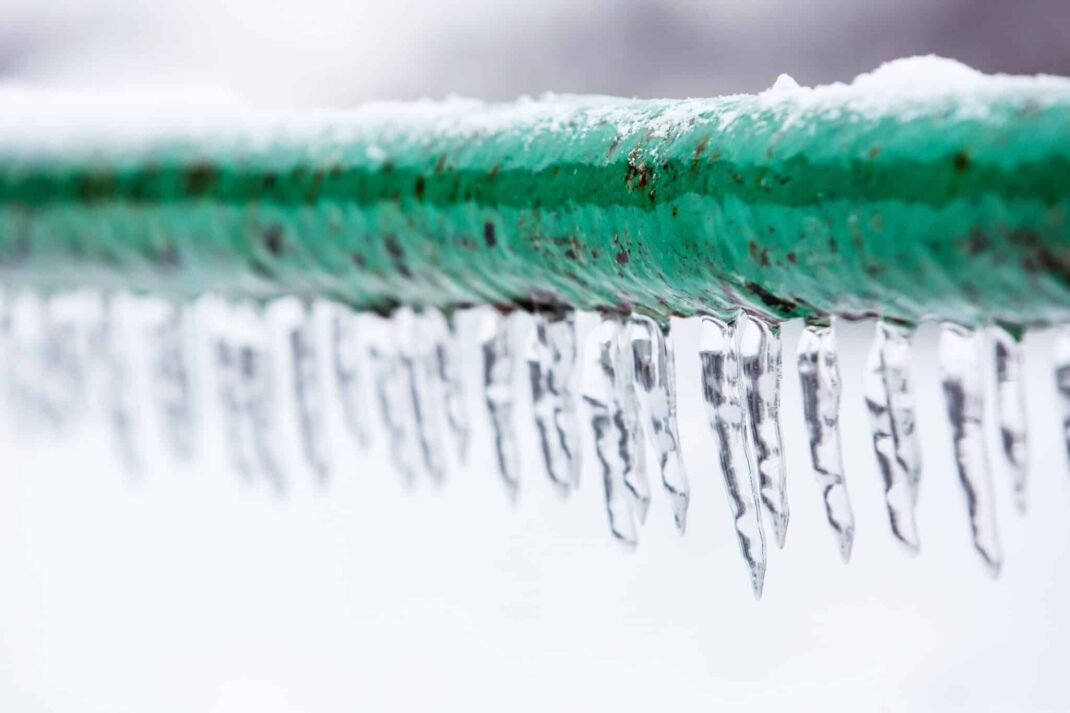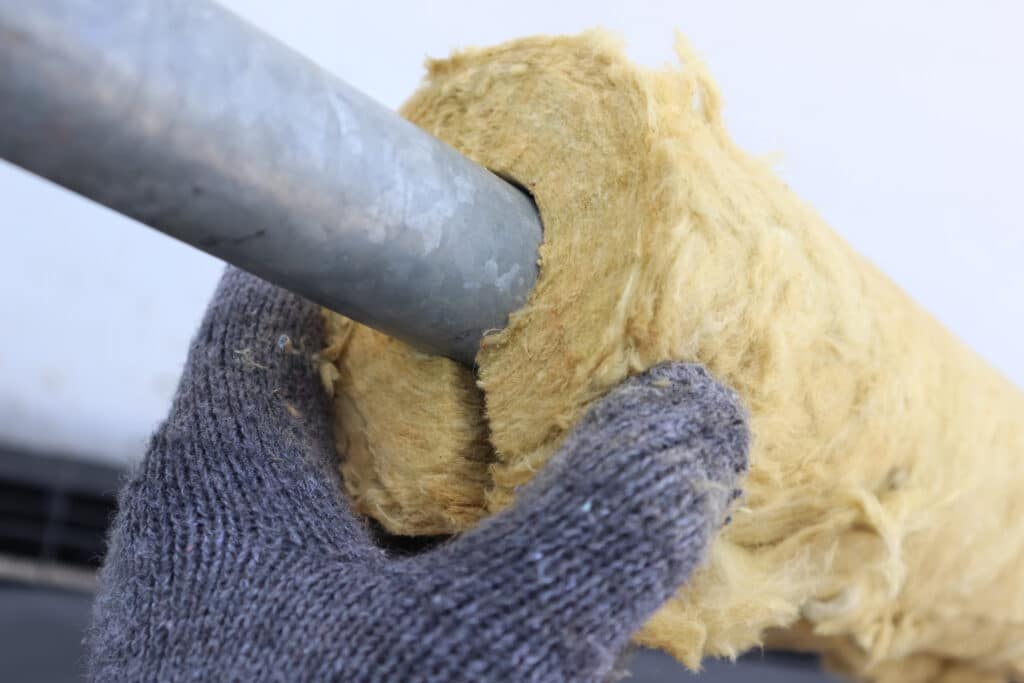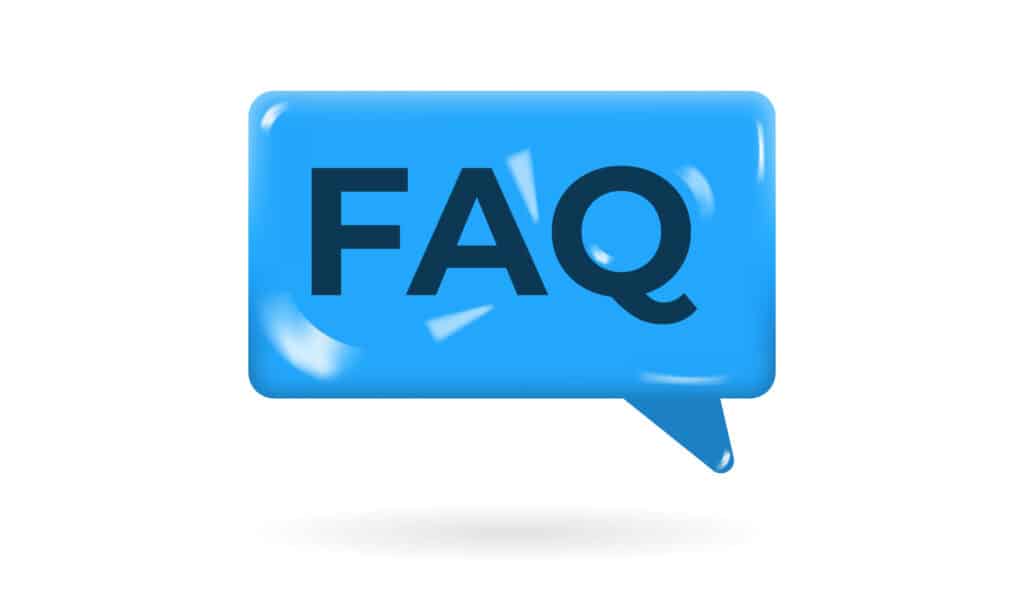
Frozen pipes can lead to expensive damage. To avoid this, wrap exposed pipes, seal any air leaks, and keep your thermostat above 55°F (13°C). Letting faucets drip also helps by keeping water moving and lowering the chance of freezing.
Why Frozen Pipes Are a Big Problem
Frozen pipes aren’t just a hassle—they can cause serious water damage and costly repairs.
When water freezes in a pipe, it expands and builds pressure until the pipe bursts.
Even a tiny 1/8-inch crack can leak up to 250 gallons of water a day, flooding your home, ruining floors, and leading to mold.
The worst part? You may not notice a problem until it’s too late.
You might turn on a faucet and get nothing—or worse, come home to a flooded bathroom, kitchen, or basement.
Burst plumbing can wreck drywall and weaken your home’s structure, making repairs even more expensive.
For homeowners in Quinby, SC, where winter temperatures can drop unexpectedly, prevention is key.
Insulate your plumbing, keep the heat steady, and seal any air leaks to reduce the risk.
If a pipe does freeze or burst, acting fast can help limit the damage, but in many cases, you’ll need a professional to fix the issue and prevent more problems.
If you’re dealing with an emergency, reach out to Benjamin Franklin Plumbing of Florence, SC.
Why Pipes Freeze
Frozen pipes occur when the temperature drops and the water inside sits still.
If the temperature falls below 20°F (-6°C), the water starts to freeze.
As it turns to ice, it expands and puts pressure on the pipe.
This can cause cracks or even make the pipe burst.
When it gets to 0°F (-18°C) or lower, the risk is much higher, especially for pipes that are not insulated or are out in the open.
Some plumbing lines are more likely to freeze than others.
Those in exterior walls, basements, and unheated crawl spaces are at the highest risk.
If cold air gets inside through cracks or gaps, water lines can freeze even faster.
Pipes in garages or near drafty windows also face the same problem.
In warmer places like Quinby, SC, this issue can be an unexpected problem.
Homes there aren’t built for extreme cold, so a sudden freeze can catch homeowners off guard.
By knowing the causes of pipe freezing, homeowners can take simple steps to prevent costly damage from burst plumbing in winter.
Where Pipes Are Most at Risk of Freezing
Some plumbing lines freeze faster than others.
Certain spots in your home are more at risk when temperatures drop.
Pipes in exterior walls are a big concern since they often have less insulation and are exposed to cold air.
Without protection, they can freeze and burst.
Basements, attics, and crawl spaces also face a high risk.
These areas usually don’t get enough heat, making pipes there more likely to freeze.
Any uninsulated or poorly insulated pipes along walls, ceilings, or floors should be secured before winter hits.
Outdoor plumbing, like hose bibs and sprinkler lines, is another weak point.
If water stays in these pipes and temperatures drop below freezing, ice can expand and cause cracks or bursts.
Disconnect garden hoses and winterize outdoor faucets to avoid big damage.
Even indoor plumbing can be affected.
Pipes under sinks, especially along exterior walls, can trap cold air.
Leaving cabinet doors open during extreme cold helps warm air reach the pipes.
Taking steps to protect these high-risk areas can prevent costly repairs and water damage due to frozen pipes in Quinby, SC.

Insulating Your Pipes for Winter Protection
Keeping your pipes warm is one of the best ways to prevent frozen pipes during the cold Quinby, SC winters.
Without insulation, exposed pipes lose heat fast, which can lead to ice buildup and costly damage.
Best Materials for Pipe Insulation
Using the right materials makes a big difference.
Foam pipe sleeves are an easy and budget-friendly way to wrap pipes and keep heat in.
For colder spots like basements, crawl spaces, and attics, fiberglass insulation adds extra protection.
In extreme cold, heat tape or heat cables can provide steady warmth around pipes.
How to Install Insulation
Installation is simple but must be done right.
Measure your pipes and cut insulation sleeves to fit.
Make sure they cover the pipes completely, especially around joints and bends where heat escapes the most.
Use electrical tape or zip ties to keep them in place.
Insulating your pipes can cut heat loss by up to 80%, making freezing less likely.
But even with insulation, sudden cold snaps can still be a threat.
If you suspect frozen pipes or a burst, call Benjamin Franklin Plumbing of Florence, SC for help right away.
Keep Water Moving to Stop Frozen Pipes from Freezing
Running water is one of the easiest ways to stop Pipes from freezing.
When water sits still, it’s more likely to freeze, especially in extreme cold.
A steady drip can keep things flowing and prevent ice from forming.
You don’t need to run every faucet—focus on taps connected to pipes in unheated spots like basements, attics, and exterior walls.
A slow, steady drip—about 5 drops per minute—helps relieve pressure and lowers the risk of burst pipes.
Let both hot and cold water lines drip to keep water moving through the system, reducing the likelihood of Frozen Pipes forming.
If it’s an especially cold night in Quinby, SC, turn on the taps farthest from the main water line.
This keeps water flowing through the whole system and protects the most vulnerable pipes.
Homes with well water or older plumbing need to be extra careful.
Freezing water expands and puts pressure on pipes, which can cause them to burst.
Even a small 1/8-inch crack can leak up to 250 gallons of water daily, leading to serious damage.
If you think you might have a pipe emergency due to Frozen Pipes, call the experts at Benjamin Franklin Plumbing of Florence, SC.
Seal Cracks and Gaps to Keep Pipes Safe
Small gaps around pipes let in cold air, which can freeze your plumbing.
Sealing these gaps keeps warm air in and cold air out, lowering the risk of pipe freezing.
Check spots where pipes enter your home, like exterior walls, basements, and crawl spaces.
Look for gaps around pipes, vents, and foundation cracks.
Use caulk or spray foam for small gaps—this can raise the temperature around pipes by up to 4°F (2°C) and prevent freezing.
For bigger gaps, use expanding foam or rigid foam insulation for extra protection.
Doors and windows also let in cold drafts.
Add weather stripping around doors and seal window gaps with shrink film to improve insulation and protect nearby pipes.
If cold air gathers near an access panel or utility closet, use an insulated cover for extra defense.
For more tips on sealing air leaks, check out resources like the Department of Energy.
These simple fixes can help you avoid costly repairs and keep your plumbing safe all winter in Quinby, SC.
Keep Indoor Temperatures Steady to Protect Pipes
One of the easiest ways to prevent pipes from freezing is to maintain a steady indoor temperature.
**Set your thermostat to at least *55°F (13°C)*—even when you’re away**—so your pipes don’t get too cold.
Lowering the heat too much to save money can backfire, leading to expensive water damage and repairs.
Consistency matters.
Keep interior doors open to spread heat evenly, especially in rooms with exposed plumbing like laundry rooms, kitchens, and bathrooms.
If certain areas of your home tend to stay colder—like basements or attics—use space heaters to keep the temperature safe and protect against frozen pipes.
At night, don’t lower the thermostat too much.
A small drop might save a few bucks, but it could also push pipes in colder spots past their freezing point.
If a deep freeze is coming to Quinby, SC, keep a close eye on indoor heat levels.
Preventing frozen pipes during extreme cold spells requires staying proactive with home heating and insulation.
You can also open cabinet doors under sinks to let warm air reach the pipes, which helps prevent freezing.
If your home regularly faces extreme cold, upgrading to a smart thermostat can help you control temperatures even when you’re away.
A little prep now can save you from major plumbing issues caused by icy pipes.
How to Safely Thaw Frozen Pipes
Frozen pipes are a hassle, but thawing them the right way can help you avoid cracks or bursts.
If you think a pipe is frozen, check for low water pressure or frost on exposed pipes.
A pipe that feels very cold or has a bulge is probably frozen.
When dealing with Frozen Pipes, early detection can prevent bigger plumbing issues.
To thaw it safely, use gentle heat with a hairdryer, space heater, or warm towels.
Move the heat source along the pipe—don’t keep it in one spot too long.
Never use an open flame like a propane torch, as it can damage pipes or start a fire.
For Frozen Pipes behind a wall, turn up your indoor heat and open cabinet doors to let warm air reach them.
For stubborn pipes, heat tape or heat cables can help.
These tools provide steady warmth and work well in places where insulation isn’t enough.
In Quinby, SC, where winter temps can be unpredictable, acting early can save you from costly repairs.
If a pipe has already burst, shut off the main water supply right away and get professional help.
The team at Benjamin Franklin Plumbing of Florence, SC can check the damage and fix your plumbing before it gets worse.
When to Call a Professional Plumber
Frozen pipes aren’t just a winter hassle—they can cause serious water damage if not handled fast.
If you notice no water from your faucets, weird smells, or frost on pipes, take action right away.
Waiting too long can lead to burst pipes, flooding, and costly repairs.
Some homeowners try DIY fixes, but thawing pipes the wrong way can cause more harm.
Using open flames or too much heat can weaken plumbing and make them more likely to burst.
A professional plumber has the right tools and skills to find the blocked section, thaw it safely, and check for damage.
If your pipes have already burst, shut off the main water supply immediately.
A plumber can assess the damage, replace broken sections, and suggest ways to prevent future freezing.
In some cases, severe damage may require a whole-house repipe to keep your plumbing safe for winter.
Contact a professional if you suspect your pipes are frozen.
With frozen pipes, acting fast is crucial.
Waiting too long can lead to major water damage, mold, and expensive repairs.
If you’re dealing with plumbing issues in Quinby, SC, calling a pro is the best way to protect your home and avoid future problems.
Preventing Frozen Pipes: Simple Tips for Homeowners
Stopping frozen pipes starts before winter hits.
A little prep can save you from costly water damage and emergency repairs.
Simple Winter Plumbing Checklist
First, disconnect garden hoses and drain outdoor faucets. Leftover water can freeze, expand, and push ice into your pipes, causing them to burst.
Wrap exposed pipes with foam sleeves or fiberglass to keep heat in.
Also, seal any gaps around pipes with caulk or spray foam to stop cold air from getting in.
Long-Term Ways to Keep Pipes from Freezing
Getting a whole-house plumbing check from a pro like Benjamin Franklin Plumbing of Florence, SC can help make sure your plumbing is winter-ready.
Adding heat cables to pipes in crawl spaces or unheated areas gives extra protection.
Keeping your home at a steady temperature, even when you’re away, helps prevent freezing.
Flushing your water heater and pipes now and then keeps water flowing and lowers the risk of ice buildup.
Switching to frost-proof outdoor faucets can also stop plumbing from freezing outside.
Stopping frozen pipes is easy if you plan ahead.
With these simple steps, you can avoid plumbing troubles and keep your system working all winter in Quinby, SC.
How Residents Can Get Ready for Cold Weather
Getting your home ready for Quinby’s winter means protecting your plumbing.
A sudden cold snap can lead to frozen pipes, and if they burst, repairs can be expensive.
But a few simple steps can help keep your pipes safe all winter.
First, open cabinet doors under sinks in your kitchen and bathroom.
This lets warm air circulate around pipes, helping prevent freezing.
Even a little extra warmth can make a big difference.
Next, disconnect and drain outdoor hoses before the first big freeze.
Leftover water can freeze, expand, and push ice into your home’s supply lines, which can cause pipes to burst.
Installing frost-proof spigots can add extra protection.
It’s also important to keep your home heated.
Set your thermostat to at least 55°F (13°C), even if you’re not home.
Keeping a steady temperature helps prevent your plumbing from freezing.
To avoid frozen pipes, seal any air leaks around doors, windows, and places where plumbing enters your home.
Cold drafts can lower temperatures near pipes.
Use caulk or spray foam to keep warm air inside.
If you want expert help in Quinby, SC, Benjamin Franklin Plumbing of Florence, SC offers winterization services.
Their team can check your plumbing and make sure your home is ready for cold weather.
Learn more about their services and stay winter-ready.

FAQs
How do I know if my pipes are frozen?
If little to no water comes from your faucet, your pipes might be dealing with ice blockages. You may also see frost on the pipes or hear odd noises when you turn on the tap. If a pipe has burst, you’ll notice leaks or water damage near walls and ceilings.
Should I turn off the water if my pipes freeze?
Yes. Turning off the main water supply can prevent more damage if a pipe bursts. Once it’s off, open faucets to release pressure and start thawing the pipe safely.
Can I use a space heater to thaw frozen pipes?
Yes, but be careful. Keep the heater away from anything that can catch fire, and never leave it alone. A hairdryer or warm towels can also help thaw pipes slowly.
At what temperature do pipes freeze?
Pipes can freeze when temperatures drop below 20°F (-6°C). The risk gets much worse at 0°F (-18°C) or lower. Good insulation and heating can help keep pipes from freezing.
When should I call a plumber for frozen pipes?
Call a plumber if you can’t get water flowing, see a burst pipe, or suspect damage inside walls. Benjamin Franklin Plumbing of Florence, SC can safely thaw and fix pipes before worse damage happens. If you’re in Quinby, SC, professional help is available to prevent costly repairs.
Mon–Sat | 8:00 am–5:00pm 24/7 Emergency Service






